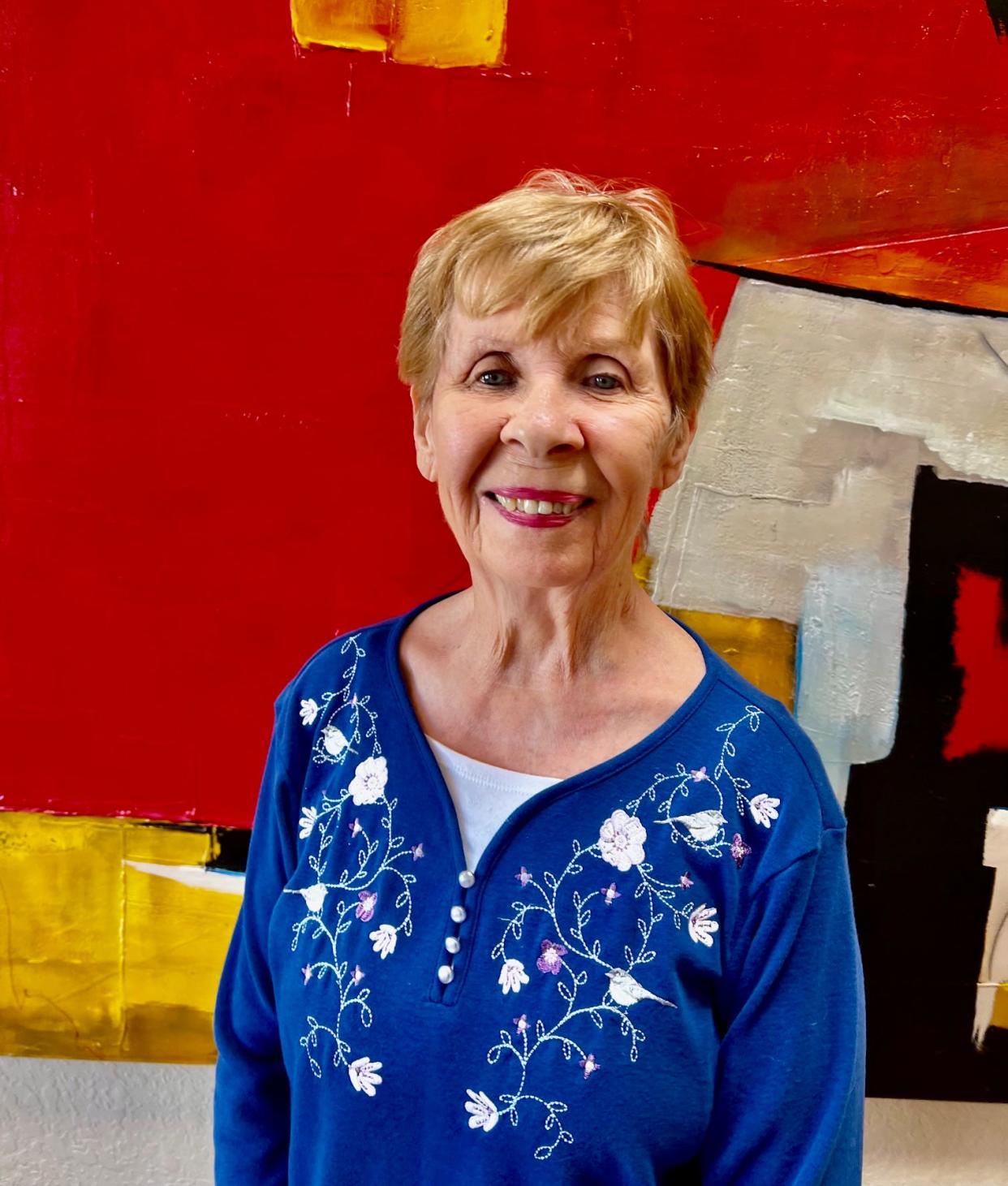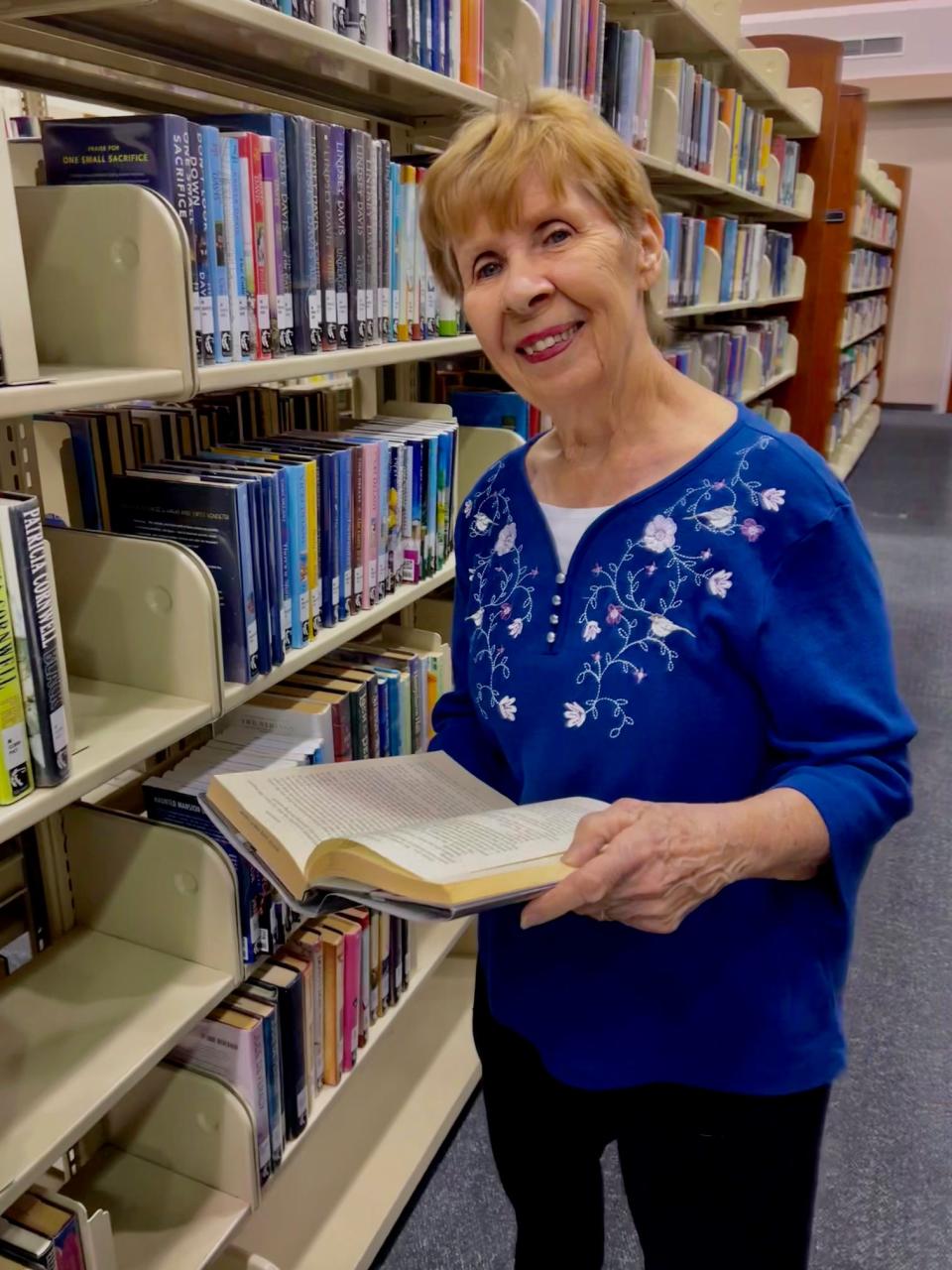'Today's kids are a lot more sophisticated': Jean Reynolds on book banning and standards

“If we don’t believe in freedom of expression for people we despise, we don’t believe in it at all.” – Noam Chomsky
Jean Reynolds has taught English in private and public schools, on college campuses and in a prison setting.
For nearly three decades, the Winter Haven resident was a professor of English at Polk State College. A George Bernard Shaw scholar, she holds bachelor’s, master’s and doctoral degrees, has written a dozen books and has published in journals as disparate as The Anglo-Welsh Review and the FBI Law Enforcement Bulletin.
Married 50 years to The Ledger’s resident horticulture authority, Charles Reynolds, she has long been an aficionado of ballroom dancing and ragtime music. She also harbors strong ideas on the subjects of censorship, book banning and educational standards.
Q. Most people would agree that parents should have the right to decide what their child can see, hear or read. Yet there are a lot of other folks out there who think they have the right, whether they have a child in school or not, to restrict what everyone’s children may be exposed to. What consequences flow from that stance being embraced by the state?
A. Huge consequences. If the books aren't there, children aren't going to get to read them. Certainly you need to be active enough in your child's life that you know what's going on, what books your child reads, but the idea that I don't like a book and therefore no child can read that book is absolutely horrifying. Plus today's kids are a lot more sophisticated than we used to be. Today it's just ridiculous to think that we can protect children from ideas and from learning about sex and learning that there are people who don't believe in God and so on, which is where a lot of this negative energy is coming from.
I was talking to a woman one time whose children were homeschooled. The girls were very intelligent, they had a good education, mostly, but they thought the Greeks were barbarians because they were not Christians. And I told their mother that C.S. Lewis, who I'm sure she admired because he was a great Christian apologist, said he wrote a whole novel based on one of the Greek myths. Someone’s going to be astonished if those kids say in a college class that the Greeks were barbarians. Insulating kids just doesn’t work.
Q. Florida leads the country in book bans, according to the nonprofit PEN America, with hundreds of books having been removed from school library shelves, including dozens in Polk County. In Escambia County, more than 1,600 books have been challenged, including the dictionary, because – as dictionaries are designed to do – it offers definitions for words related to that scary subject, “sex.” Encyclopedias are out for the same reason. Your thoughts?
A. It's idiocy, and I'm sure you saw in the paper that even Gov. DeSantis is realizing that this has been carried way too far. I really think there's very little caring about how our kids are doing – I think this is largely a political stunt. Maybe I'm wrong but certainly nobody’s bothered to get a broad consensus behind this. Nobody had a problem with professional librarians and then all of a sudden this shows up. I'm very wary of the whole thing.
Q. Banning books and burning books clearly are not the same but are they on the same continuum?
A. Burning books is a stunt. When you start burning books you are mostly performing and sending a message to people whereas banning a book could be a considered decision. Of course you have to be careful what you put in the school library. What one person calls banning another person calls making a choice. I know a very caring family who did not want their kids reading books about the Holocaust because they felt that they were just too young and it was just too horrifying. Well, that's not banning a book but making an individual choice.

Now this top-down government policy of DeSantis comes pretty close to book banning. Again, this sometimes gets to be a little bit of a performance and we get a little bit hysterical about it. The wholesale banning of books should not be a matter of government intrusion, it really should be with community input – not somebody dictating from an office somewhere.
When I was at the college, I was on the committee for what we called “challenged books.” And on that committee we had representatives from every area of the college, even maintenance, and we had people from the community, and that's the way to do it.
Q. The whole debate about challenging books on library shelves seems to be about something bigger than the immediate subject at hand. What do you think is the underlying theme?
A. I suspect that Gov. DeSantis saw an opportunity to really make a name for himself and to increase his following among a lot of parents who are worried. Now if you're a parent today you've got reason to be worried about some things. I don't think that the books in the children's library are the problem, but I'm sure there is a sizeable number of people who think that way, and he built a human connection with those people and I'm sure it got him some votes.
There's probably something bigger than simply a book or two that seems inappropriate. Does it have something to do with a belief that we’re going off the rails as a society? I would absolutely say that’s possible and that’s nothing new. I'm 78 years old, and I remember my beloved high school English teacher talking about the dangers to English – that we're losing our grammar and losing our ability to communicate. That was 1963. It's now 2024 and guess what – English teachers are saying same thing.
So we carry with us this feeling that we've left the garden of Eden and it's getting worse and worse and worse. It's probably an archetypal thing. That would be my guess.
Q. As a body politic, we inhabit the same physical world but seem to be living in wildly separate and quite dogmatic political universes. If we can’t agree on reality – such as whether an election is legitimate or what constitutes a verifiable fact – where are we headed as a society?
A. I worry about that, and yet we have checks and balances in place. It's going to be interesting and worrisome to see what happens in November and afterward but, for example, in the last election the candidates who were election deniers did not get elected so maybe democracy works better than we think it does. That's where my hope comes from.
'Something that speaks to them': The building of a world-class art museum in Lakeland
Q. Freedom of speech increasingly seems imperiled. Teaching itself has come under attack from the right, with Florida teachers fearing retribution if they step over the line of “parental rights” laws that can be legally nebulous. On the left, students at many college campuses are shouting down or denying access to speakers with whom they disagree. Where does that leave the idea of unfettered enquiry and the free exchange of ideas, however odious, that form the basis of a thoughtful education?
A. That's something I thought a lot about but I don't think it's as cut and dried and as oppositional as we might believe. Shouting down speakers – I think that's an issue for campus security. If a college or university is really having a problem with students who don't want that kind of idea exchange to happen, I would say they've got some work to do just teaching students the meaning of democracy. We also need to do a better job even in high school of telling people what freedom of speech means. Freedom of speech does not mean that you or I can say whatever we want.
Our founders were not really so interested in my right to be creative or self-expressive or to get my ideas across. What they were afraid of is if you start picking away at this idea and that idea, sooner or later you're going to kill an idea that's very good. Our founding fathers and mothers trusted the American people to somehow work this out.
As for the classroom, we really do have to push for sensible practices, protecting our teachers and not being so scared about teachers being able to talk. I think this too shall pass – or so we can hope.
This article originally appeared on The Ledger: 'Kids are a lot more sophisticated': Where's the line on book bans?

